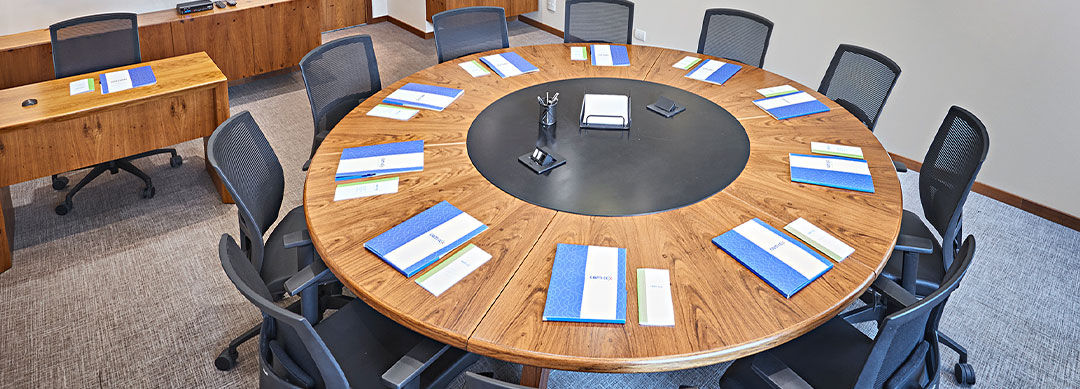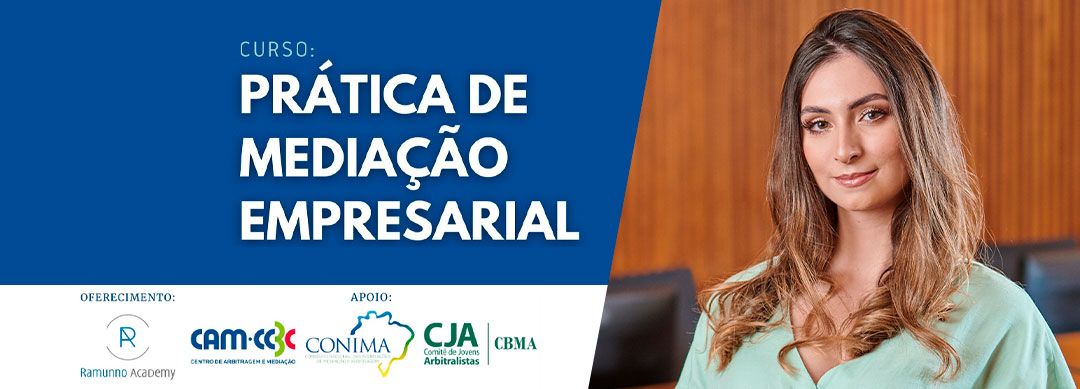Eleonora Coelho is the first woman to be president of CAM-CCBC. Prior to taking office, the attorney and arbitrator was secretary-general of the institution for four years. She has a solid academic background and extensive experience in the field of arbitration and appropriate methods of dispute resolution. She graduated from the University of São Paulo, got her master’s degree in arbitration, litigation and alternative methods of dispute settlement at the University Paris II – Pantheon Assas. She was vice-president of the Brazilian Arbitration Committee (CBAr) and was a member of the Commission of Jurists of the Federal Senate, which reformed the Arbitration Law of 2015, and later the Mediation Law.
Check out some of the main excerpts from the interview that the new president gave to the magazine Brasil Canadá, the institutional publication of CCBC:
TRANSPARENCY
“We have an academic and expert group that is studying the issue of publication of arbitration awards, in line with the world trend, in order to provide greater transparency and legal certainty to arbitration users and the legal community as a whole. Let us analyze and check the feasibility and how such publication could be done so that the secrecy of the parts and the information of the practice is preserved.”
MAJOR GUIDELINES FOR THE NEW MANAGEMENT
“CAM is the main arbitration center in Brazil and one of the most important in Latin America, and was recognized as the 8th most admired institution in the world in the International Arbitration Survey 2018, from Queen Mary University of London and White & Case.
The goal is to maintain leadership, the quality of service delivery, technically improve our tools and strengthen our position as reference. In addition, we will continue to carry out our indirect and no less important missions, such as fostering the growth of arbitration in Brazil and in the world, through, among others, the promotion and support of academic student training events. We are always attentive to the needs of the market, to the development of the arbitration institute as a whole, such as macroeconomic policy and legal security right up to the country itself.”
ARBITRATION IN BRAZIL
“Arbitration has matured in our country, and we currently have a very favorable context
to its continuous growth in several areas: legislative, judicial, doctrinal and professional. In fact, there are professionals, arbitration institutions and arbitrators qualified to act nationally and internationally. Moreover, our country has members of the Judiciary who know, support the institute and exercise control within the strict legal limits. We have strong pillars and institutions. All the ingredients for the institute to work well and for CAM-CCBC to be proud to not only be part of this story but actively contribute to its perpetuation.”
MEDIATION
“I am a mediation enthusiast and participated in the drafting of the new extrajudicial mediation law. I understand that the law helps to form a culture for its use. This culture does not have to be developed only among lawyers, but also among the clients who are the users. We need to show with concrete data the advantages of mediation. This is also a banner that we raise here at CAM-CCBC and we have just held a very successful business mediation event for members of the company. Twenty years ago I had the idea of investing in arbitration, I was considered a lunatic at the time, I persevered on this path and today we take advantage of it, personally and professionally. This investment in mediation has to be done with the future in mind.”
DIVERSITY IN ARBITRATION
“When I became secretary general, about 14% of arbitrators were women. Today the number has increased to 28%, close to our goal, which is 30%. We have Resolution 30/18, based on the signature of The Pledge (Equal Representation in Arbitration – The Pledge), by which, among others, we agree that we do not sponsor or we support events that have less than 30% women as speakers. In the nomination of arbitrators that depend on CAM, at least 50% of our nominations were women. So we’re evolving and I personally believe and fight for it.”
CHALLENGES IN THE PRESIDENCY OF CAM-CCBC
“It is exciting to take on the management of an institution that is already doing as well as CAM-CCBC, but it is also a great challenge to not only maintain the excellence that has been achieved and make it even better. I like challenges and I faced this one with great satisfaction and honor. I believe in an ethical work and I share the values that Perrotti [Paulo Perrotti, president of the CCBC] imprints, which are those of horizontal management and based on respect and constant fight for the common good. This is my work philosophy and I believe we have a promising path ahead.”





